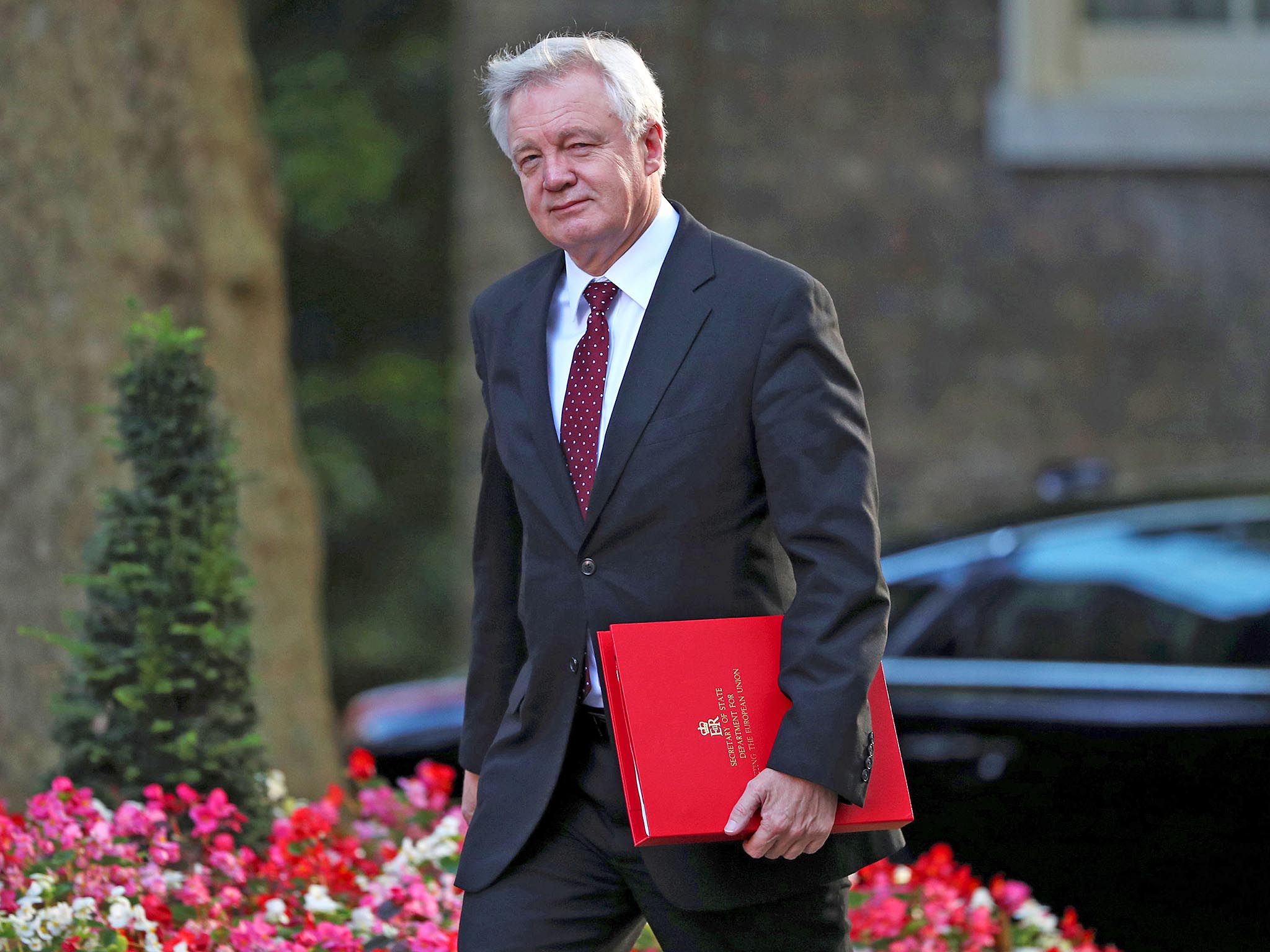Brexit: Government given deadline to release secret studies on economic damage of EU departure
After U-turn on disclosure, Brexit Secretary told not to drag his feet - or attempt to redact some of the information

Your support helps us to tell the story
From reproductive rights to climate change to Big Tech, The Independent is on the ground when the story is developing. Whether it's investigating the financials of Elon Musk's pro-Trump PAC or producing our latest documentary, 'The A Word', which shines a light on the American women fighting for reproductive rights, we know how important it is to parse out the facts from the messaging.
At such a critical moment in US history, we need reporters on the ground. Your donation allows us to keep sending journalists to speak to both sides of the story.
The Independent is trusted by Americans across the entire political spectrum. And unlike many other quality news outlets, we choose not to lock Americans out of our reporting and analysis with paywalls. We believe quality journalism should be available to everyone, paid for by those who can afford it.
Your support makes all the difference.David Davis has been told to release secret studies into the economic damage from Brexit within a few weeks, after the Government conceded a Commons vote was “binding”.
In major U-turn, the Brexit Secretary gave up his long fight to keep the documents hidden, after Labour used an ancient parliamentary procedure to force through a motion ordering their release.
“It is absolutely accepted that the motion passed by the House yesterday is binding, and that the information will be forthcoming,” the Commons leader, Andrea Leadsom, told MPs.
But there were immediate concerns that Mr Davis would drag his feet on disclosure – and insist upon lengthy redactions before any information is released.
In a strongly-worded letter, Hilary Benn, the chairman of the all-party Brexit Committee, said it should jointly decide what parts of the studies are too sensitive to make public.
And he insisted ministers’ timetable for responding to Commons defeats on other issues – 12 week – would be completely unacceptable.
“I would be grateful if you could confirm in writing, as soon as possible, the arrangements that you are now making, to give to this decision,” he told Mr Davies.
The letter added: “I would be very happy to discuss with you any particular concerns you may have about publication of parts of the material, so that the committee can take these into account.”
And, on the 12-week response timeframe, it said: “Given that in this case the Government already has the material, I trust that it will be possible to provide the documents concerned much sooner than that.”
The pressure comes after ministers originally refused to say they would abide by what independent parliamentary clerks advised was a binding vote.
Pro-EU Tory MP Anna Soubry said the Government was scared to reveal the truth about EU withdrawal, saying: “It might prick this golden bubble, this balloon, of the promised land of Brexit.”
Mr Davis confirmed the U-turn, saying he had spoken with Mr Benn “about how we handle the confidentiality of the documentation we'll hand over”.
He tried to play down its significance, insisting it was not “some sort of grand plan”, but “data about the regulations and the markets of individual sectors”.
“Of course we will be as open as we can be with the select committee, I fully intend to,” Mr Davies added.
However, the Labour motion called for the full, unredacted impact assessments to be passed to the Brexit select committee, which would decide what elements could be released.
It is thought they have been placed in a single, huge document, covering experts’ verdicts into the likely impact of different scenarios for EU withdrawal on different sectors.
They comprise no less than 88 per cent of the economy, covering everything from food prices, tourism and banking to aerospace, pharmaceuticals, oil and steel
The clerks agreed that 19th century rules allow MPs to demand papers “which are in the possession of ministers”, by passing a motion.
Ministers had insisted Brexit policymaking must be “conducted in a safe space to allow for design and deliberation to be done in private.”
Subscribe to Independent Premium to bookmark this article
Want to bookmark your favourite articles and stories to read or reference later? Start your Independent Premium subscription today.
Join our commenting forum
Join thought-provoking conversations, follow other Independent readers and see their replies
Comments